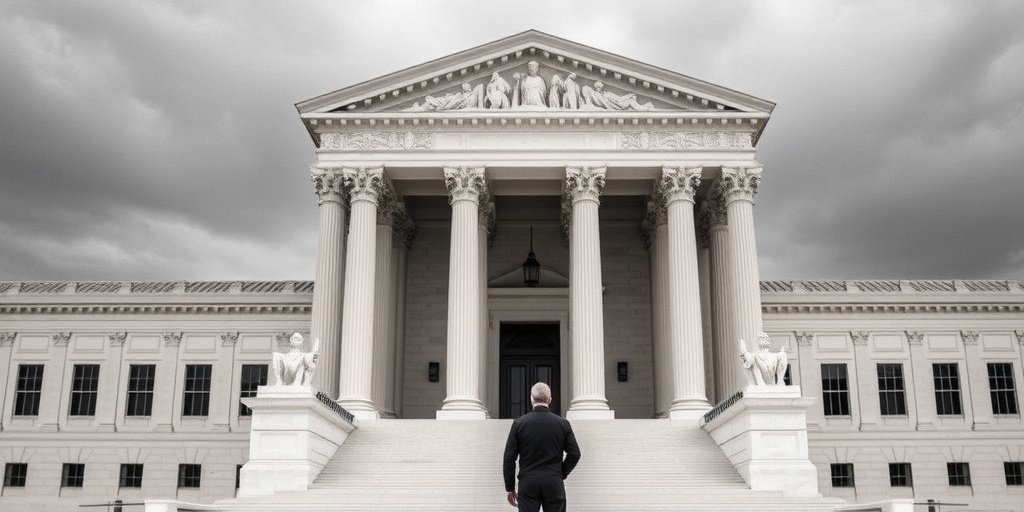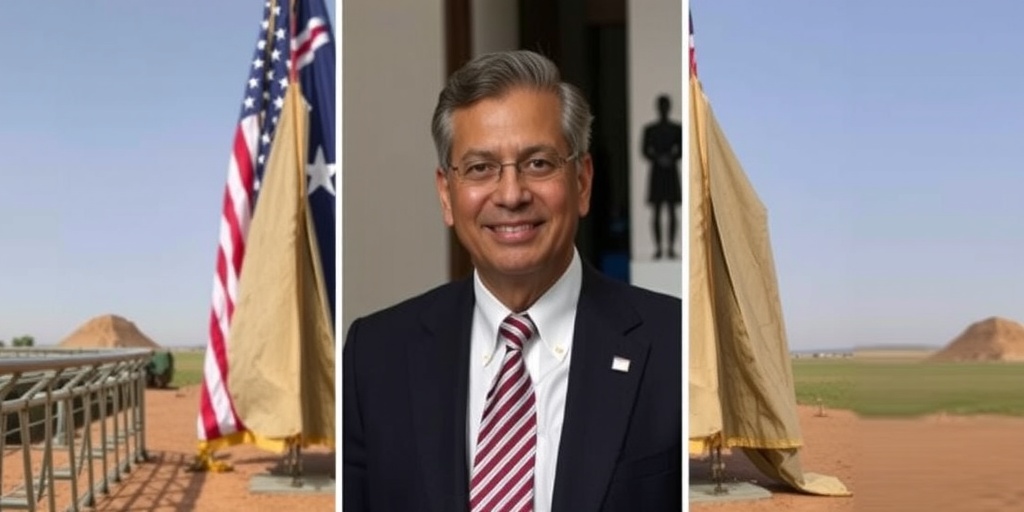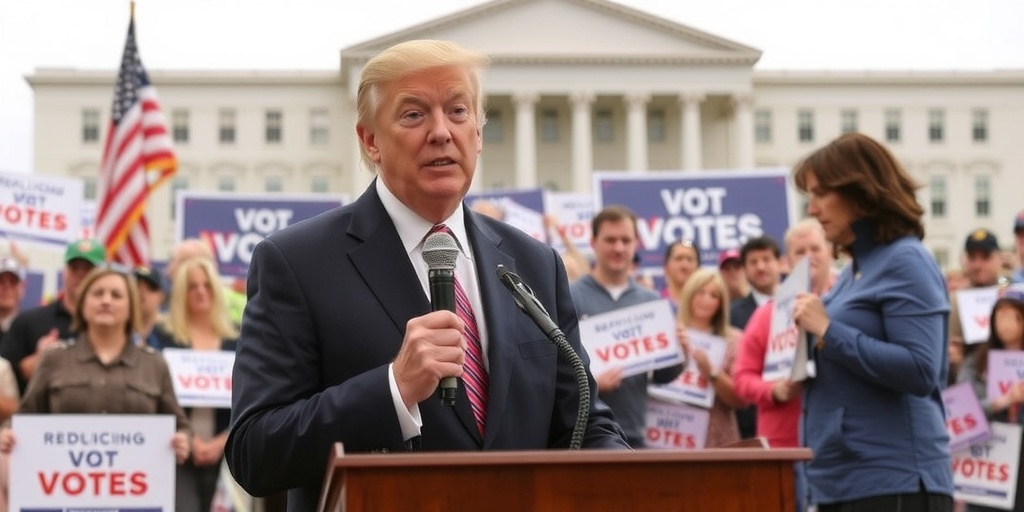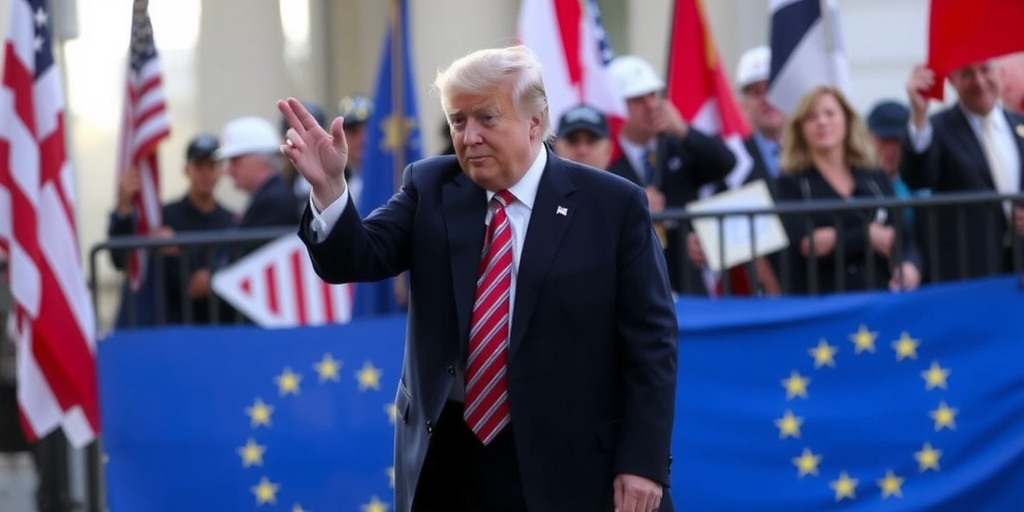Now Reading: Judges Challenge Trump: Key Rulings Overview
-
01
Judges Challenge Trump: Key Rulings Overview
Judges Challenge Trump: Key Rulings Overview

Federal Courts Push Back Against Trump Administration’s Executive Actions
In recent months, federal judges across the United States, particularly in Washington D.C., have been actively responding to a series of executive orders issued by President Trump. This judicial activity comes as a reaction to what many perceive as an unprecedented expansion of presidential power and an aggressive assault on the federal bureaucracy. The rulings delivered by various courts have covered a wide array of issues, including foreign aid, transgender rights, immigration, and the president’s authority over appointees.
These decisions collectively signal a robust challenge to President Trump’s attempts to consolidate power within the executive branch. While some court rulings have favored the administration, the trend leans significantly towards judicial pushback against actions perceived to exceed constitutional bounds. As the legal battles unfold, the administration has appealed numerous rulings, and it is likely that many decisions will be overturned or re-evaluated as they progress through higher courts.
Key rulings from federal courts have emerged as particularly significant, shedding light on both the legal reasoning behind them and the broader implications for executive branch authority.
The President’s Authority to Dismiss Appointees
In one notable case, Judge Beryl A. Howell of the Federal District Court for the District of Columbia ruled against President Trump’s claim that he could freely dismiss members of the National Labor Relations Board. Judge Howell’s ruling articulated a crucial distinction about the presidency, emphasizing that the framers of the Constitution intended for the executive branch to act as a guardian of the law, rather than as an authoritarian figure. The ruling underscored the importance of respecting congressional mandates regarding personnel decisions within the executive branch.
Birthright Citizenship
Another landmark ruling came from Judge Leo T. Sorokin of the Federal District Court for the District of Massachusetts, who ruled that President Trump could not issue an executive order effectively abolishing birthright citizenship. The judge pointed out that the consequences of losing birthright citizenship could lead to irreparable harm, particularly for children affected by such actions. The ruling highlighted the long-lasting impacts on families, including issues concerning healthcare access and potential deportation, thereby emphasizing the court’s concern over the permanence of such policy changes.
Freezing Federal Funding and Foreign Aid
Judge Loren L. AliKhan, also from the Federal District Court for D.C., delivered a stinging rebuke of the administration’s attempt to freeze federal spending, including foreign aid. The judge characterized the administration’s efforts as ‘irrational’ and ‘imprudent,’ stating that halting trillions of dollars in federal funding abruptly could precipitate a nationwide crisis. Additionally, Judge Amir H. Ali echoed these sentiments, ruling that the administration overstepped its constitutional authority when it attempted to halt spending by the U.S. Agency for International Development, reaffirming Congress’s exclusive power of the purse.
Efforts to Transform the Federal Workforce
The actions taken by the newly established U.S. DOGE Service (Department of Government Efficiency) have raised substantial concerns regarding transparency and accountability. Judge Christopher R. Cooper ruled that this agency must comply with the Freedom of Information Act (FOIA), emphasizing the need for oversight given the sweeping changes it has enacted in a short period, including significant budget cuts and employee terminations.
Funding for Gender-Affirming Care
In a ruling significant for LGBTQ+ rights, Judge Brendan A. Hurson of the Federal District Court for the District of Maryland prevented the Trump administration from enforcing an executive order designed to withhold federal funding for providers of gender-affirming medical care for individuals under 19 years of age. The judge underscored the serious mental and physical implications for those affected, reinforcing the view that such healthcare is essential.
Immigration Enforcement Near Places of Worship
Finally, Judge Theodore D. Chuang ruled against the Department of Homeland Security’s abrupt removal of protections preventing immigration enforcement actions in or near places of worship. The ruling highlighted longstanding protections rooted in the First Amendment, noting how government actions in religious spaces could infringe on constitutional rights.
Conclusion
Taken together, these rulings illustrate a critical moment in American governance. As federal judges reaffirm the limits of presidential authority and the necessity of adhering to established legal frameworks, they provide a counterbalance to the expansive executive actions launched by the Trump administration. With ongoing appeals and further legal challenges anticipated, the interplay between the judiciary and the executive branch will remain a focal point in the unfolding political landscape.
Stay Informed With the Latest & Most Important News
Previous Post
Next Post
-
 01New technology breakthrough has everyone talking right now
01New technology breakthrough has everyone talking right now -
 02Unbelievable life hack everyone needs to try today
02Unbelievable life hack everyone needs to try today -
 03Fascinating discovery found buried deep beneath the ocean
03Fascinating discovery found buried deep beneath the ocean -
 04Man invents genius device that solves everyday problems
04Man invents genius device that solves everyday problems -
 05Shocking discovery that changes what we know forever
05Shocking discovery that changes what we know forever -
 06Internet goes wild over celebrity’s unexpected fashion choice
06Internet goes wild over celebrity’s unexpected fashion choice -
 07Rare animal sighting stuns scientists and wildlife lovers
07Rare animal sighting stuns scientists and wildlife lovers





















